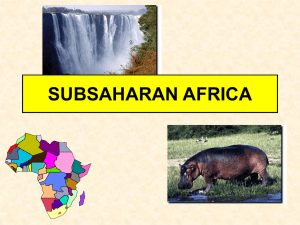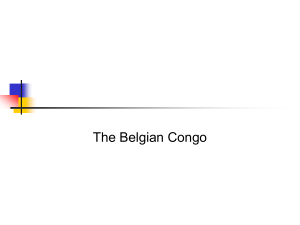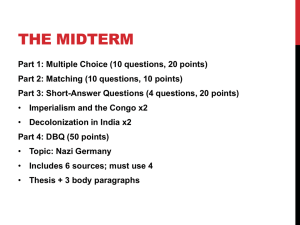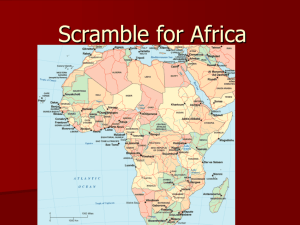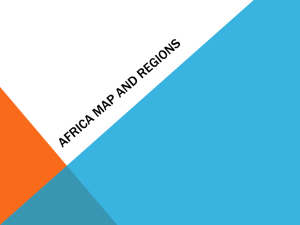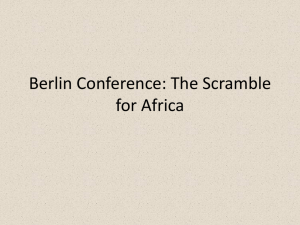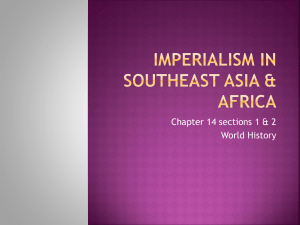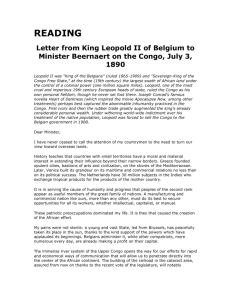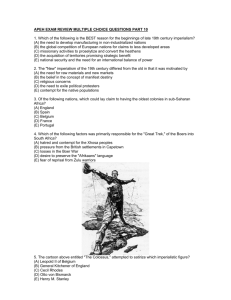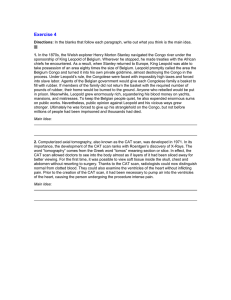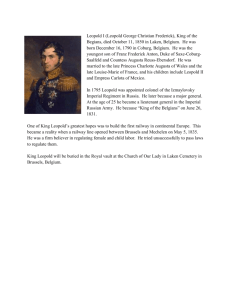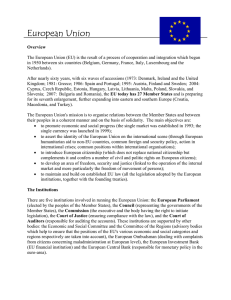The Berlin Conference - Aurora Public Schools
advertisement
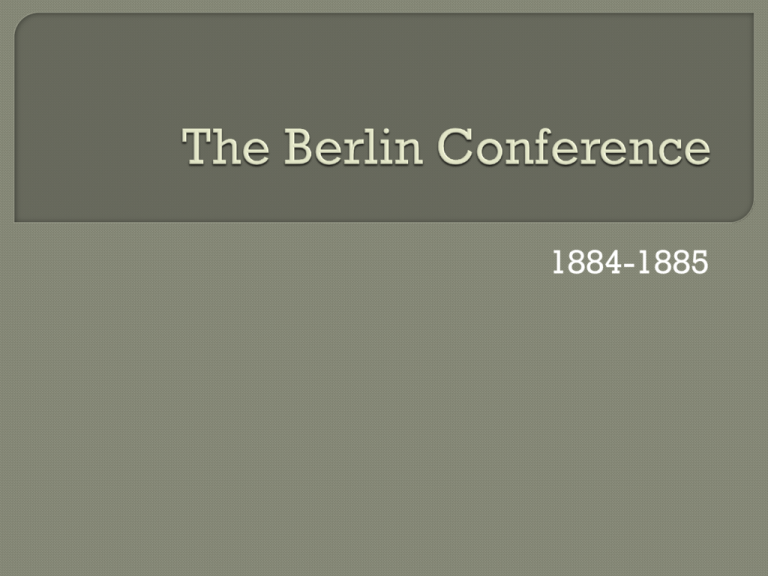
1884-1885 Portugal asked for the meeting and Bismarck of Germany called it in hopes of expanding Germany’s colonial holdings 14 countries present: Austria-Hungary, Belgium, Denmark, France, Germany, Great Britain, Italy, the Netherlands, Portugal, Russia, Spain, Sweden-Norway (unified from 1814-1905), Turkey, and the [United States of America—did not actually participate]. coastal Africa was colonized France had a presence in northern Africa (Tunisia, Algeria) Britain occupied Egypt in late 1880s Belgium and Portugal had a small presence in Congo Basin to negotiate questions and end confusion over the control of Africa Bismarck appreciated the opportunity to expand Germany's sphere of influence over Africa and desired to force Germany's rivals to struggle with one another for territory. King Leopold (Belgium) was able to convince everyone that open trade on the Congo and Niger Rivers in Africa was in everyone’s best interest some of Africa was already colonized—the rest needed dividing up “WISHING, in a spirit of good and mutual accord, to regulate the conditions most favourable to the development of trade and civilization in certain regions of Africa, and to assure to all nations the advantages of free navigation on the two chief rivers of Africa flowing into the Atlantic Ocean;” “BEING DESIROUS, on the other hand, to obviate the misunderstanding and disputes which might in future arise from new acts of occupation (prises de possession) on the coast of Africa; and concerned, at the same time, as to the means of furthering the moral and material well-being of the native populations;” “Freedom of conscience and religious toleration are expressly guaranteed to the natives, no less than to subjects and to foreigners. The free and public exercise of all forms of divine worship, and the right to build edifices for religious purposes, and to organize religious missions belonging to all creeds, shall not be limited or fettered in any way whatsoever.” Great Britain desired a Cape-to-Cairo collection of colonies and almost succeeded though their control of Egypt, Sudan Uganda, Kenya South Africa, and Zambia, Zimbabwe and Botswana. The British also controlled Nigeria and Ghana France took much of western Africa, most of Sahara. Belgium and King Leopold II controlled the Democratic Republic of Congo Portugal took Mozambique & Angola Italy's holdings were Somalia & a portion of Ethiopia Germany took Namibia and Tanzania Spain claimed the smallest territory - Equatorial Guinea. “What ultimately resulted was a hodgepodge of geometric boundaries that divided Africa into fifty irregular countries. This new map of the continent was superimposed over the one thousand indigenous cultures and regions of Africa. The new countries lacked rhyme or reason and divided coherent groups of people and merged together disparate groups who really did not get along.” Europe superimposed its domains on Africa. When independence returned in the 1950s, ethnic tension, political fragmentation, bitterness towards Europe, and the perfect set up for civil wars and genocides
